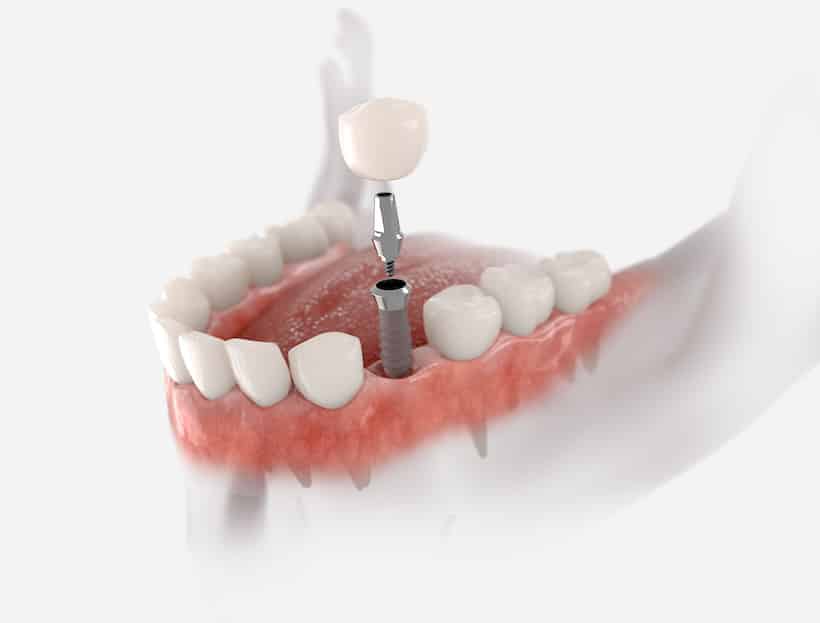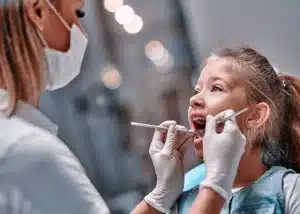Why No Dairy After Dental Implant?
Getting a dental implant is a transformative experience that can bring back your confidence and improve your quality of life. Dental implants are often the best option for tooth replacement, closely mimicking the look and function of natural teeth. However, the success of a dental implant doesn’t just rely on the surgical procedure but also heavily depends on the post-operative care.
At Diamond Dental, Bellingham, we take your oral health very seriously, and we want to make sure that you have all the information needed for a successful recovery. One common query we hear from our patients is, “Why can’t I have dairy products immediately after getting a dental implant?” It’s a question that we hear quite often, and it’s worth diving into the reasons behind this guideline.
The Initial Healing Phase is Crucial
After your implant surgery, your body goes into a healing mode. The success of your dental implant largely depends on how well the implant integrates with the jawbone—a process called osseointegration. During this sensitive period, it is crucial to follow specific dietary guidelines to avoid complications.
Risk of Infection
The mouth is a place where bacteria thrive, including both good and bad strains. Consuming dairy products immediately after surgery can increase the chances of bacterial growth, leading to potential infections. Products like milk, cheese, and yogurt can act as a culture medium for bacteria if they become lodged around the surgical site.
Digestive Concerns
Antibiotics are often prescribed after implant surgery to minimize the risk of infection. Dairy products can interact with certain antibiotics, making them less effective. Additionally, dairy is harder to digest, and gastrointestinal issues can indirectly affect your healing process.
Oral Environment
Milk and other dairy products are often high in sugar, which can create an acidic environment in your mouth. An acidic oral environment can delay healing and even increase the risk of implant failure.
Inflammatory Concerns
Dairy products have been linked to inflammatory responses in some people. While inflammation is a natural part of the healing process, excessive inflammation can compromise the success of the implant.
Alternatives to Dairy
You don’t have to give up on your calcium and protein intake just because you can’t have dairy immediately after your implant surgery. Here are some alternatives:
– Almond Milk: A non-dairy option rich in calcium.
– Coconut Yogurt: This offers the creamy texture of yogurt without the dairy content.
– Bone Broth: Packed with nutrients and easy on your digestive system.
– Leafy Greens: High in calcium and other essential nutrients.
When Can You Have Dairy Again?
The restriction on dairy is generally temporary. Once your surgical site shows signs of proper healing and when you’re off any antibiotics that might interact with dairy, you can usually reintroduce these foods into your diet. However, it’s essential to consult your dentist at Diamond Dental, Bellingham, to get personalized advice tailored to your healing progress.
Why to choose Diamond Dental?
Have more questions about dental implants or post-operative care? Don’t hesitate to reach out to us. At Diamond Dental, Bellingham, your oral health is our top priority. Book your consultation today to ensure a worry-free, successful dental implant experience.
Call us now for personalized dental care that shines as bright as a diamond!
Frequently Asked Questions for why no dairy after dental implant
How long does it take to recover from a dental implant surgery?
The initial healing phase, where the implant integrates with the jawbone, can take anywhere from 6 to 12 weeks. However, the total recovery time may extend up to 6 months depending on individual health factors and the complexity of the procedure.
Is it just dairy I should avoid, or are there other foods as well?
While dairy is a major category to avoid, you should also steer clear of hard, sticky, or extremely hot or cold foods. Foods that require vigorous chewing can disturb the implant site and should be avoided during the initial healing phase.
Are non-dairy milk options like almond and oat milk safe?
Yes, non-dairy milk like almond, oat, and soy are generally safe to consume after dental implant surgery. They do not present the same risks as traditional dairy products and are often enriched with calcium.
What are the signs of implant failure or infection?
Persistent pain, swelling, and discomfort beyond the expected healing period could be signs of implant failure or infection. If you experience these symptoms, contact your dentist immediately for evaluation and treatment.
Can I use a straw after my dental implant surgery?
Using a straw immediately after surgery is generally not recommended. The sucking motion can dislodge blood clots that are crucial for the healing process and may lead to a painful condition known as “dry socket.”
When can I resume my normal diet?
You should consult your dentist for personalized advice tailored to your healing progress. However, most patients can gradually reintroduce harder foods into their diet after the initial 6-12 week healing phase, assuming there are no complications.








